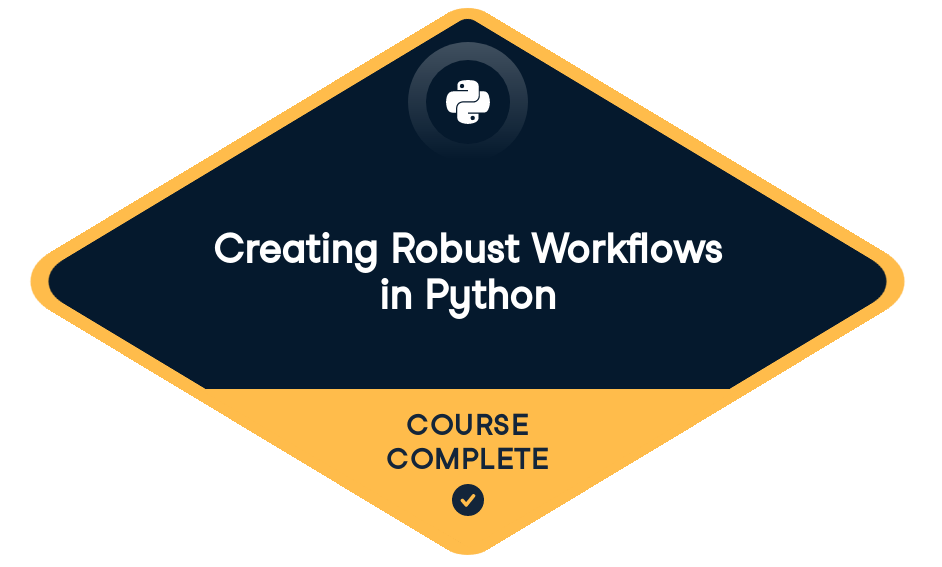
Loved by learners at thousands of companies
Course Description
The decisions we make in life are guided by our principles. No one is born with a life philosophy, instead everyone creates their own over time. In this course, you will develop a set of principles for your data science and software development projects. These principles will save time, prevent frustration, and build your confidence as a data scientist and software developer. In addition to best practices in the Python programming language, You will learn to leverage hidden gems in the Python standard library and well-known tools from Python's excellent ecosystem, such as pandas and scikit-learn. The time you invest in this course will yield dividends for you and others throughout your career. Your colleagues, community members, and future self will thank you.
Training 2 or more people?
Get your team access to the full DataCamp platform, including all the features.- 1
Python Programming Principles
FreeIn this chapter, we will discuss three principles that guide decisions made by Python programmers. You will put these principles into practice in the coding exercises and throughout the rest of the course!
- 2
Documentation and Tests
Documentation and tests are often overlooked, despite being essential to the success of all projects. In this chapter, you will learn how to include documentation in our code and practice Test-Driven Development (TDD), a process that puts tests first!
- 3
Shell superpowers
Shell scripting is an essential part of any Python workflow. In this chapter, you will learn how to build command-line interfaces (CLIs) for Python programs and to automate common tasks related to version control, virtual environments, and Python packaging.
Command-line interfaces50 xpArgparse nbuild()100 xpDocopt nbuild()100 xpGit version control50 xpCommit added files100 xpCommit modified files100 xpVirtual environments50 xpList installed packages100 xpShow package information100 xpPersistence and packaging50 xpPickle dataframes100 xpPickle models100 xp - 4
Projects, pipelines, and parallelism
In the final chapter of this course, you will learn how to facilitate and standardize project setup using project templates. You will also consider the benefits of zipped executable projects, Jupyter notebooks parameterization, and parallel computing.
Training 2 or more people?
Get your team access to the full DataCamp platform, including all the features.collaborators


Join over 18 million learners and start Creating Robust Workflows in Python today!
Create Your Free Account
or
By continuing, you accept our Terms of Use, our Privacy Policy and that your data is stored in the USA.